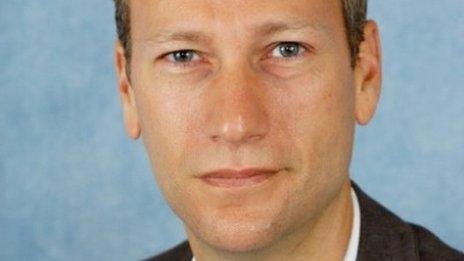Farage: UKIP can do extremely well in assembly election
- Published
Nigel Farage speaks to Oliver Hides
UKIP leader Nigel Farage has issued a rallying call for his party to become the official opposition in Wales after next year's assembly elections.
The party failed to win extra seats in May's general election, but its share of the Welsh vote went from 2 to 14%.
Mr Farage said the party could get a boost from a "high profile" if the election runs alongside a nationwide EU referendum.
He told BBC Radio Wales he would not stand in the assembly elections.
Speaking on Thursday, Mr Farage said Welsh UKIP is "well organised" and "well led" by Nathan Gill, with "an attractive slate of candidates" standing next May.
"We are very, very strong in Wales. We have got a great level of support," he told Good Morning Wales.
'Extremely well'
"And I suspect that, if those assembly elections are at or around the same time as a European referendum, with UKIP very high profile in making the arguments, I think we can do extremely well."
He said becoming the official opposition was the "ambition" and the "target" for the party.
Asked whether he would be in the ballot, Mr Farage said: "No way. I've got enough on my plate as it is, thank you."
In 2011, UKIP polled about 44,000 votes in the assembly ballot - 4.6% of the total.
It became the third largest party in Wales in terms of percentage of the overall vote after the last general election.
'Small cartel'
Former UKIP MEP Godfrey Bloom told BBC Radio Wales that the party had a history of making a "dog's breakfast of elections in Wales" and it should "keep London out of it".
He said Nathan Gill and Welsh UKIP should be left to run the assembly election campaign.
Mr Bloom added there was a "danger" that letting former English MP Mark Reckless run it may put the Welsh public off.
"There's a small cartel of people at UKIP at head office who like to run everything and I don't think that goes down very well with the Welsh," he added.
UKIP has been asked to comment on Mr Bloom's remarks.
- Published15 October 2014
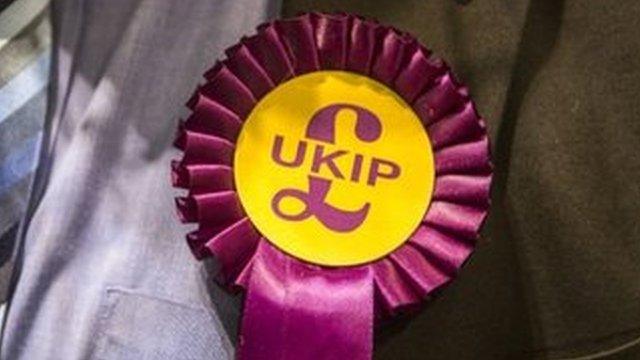
- Published23 November 2014
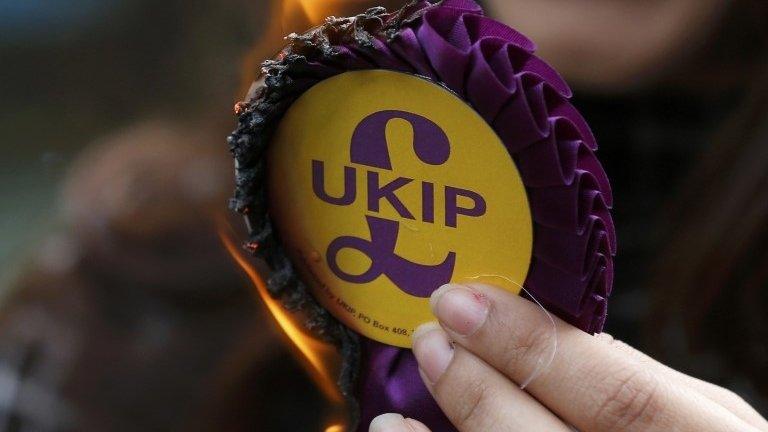
- Published22 September 2013
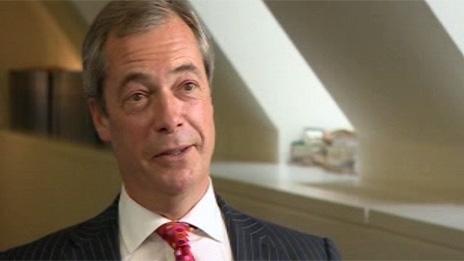
- Published6 December 2014
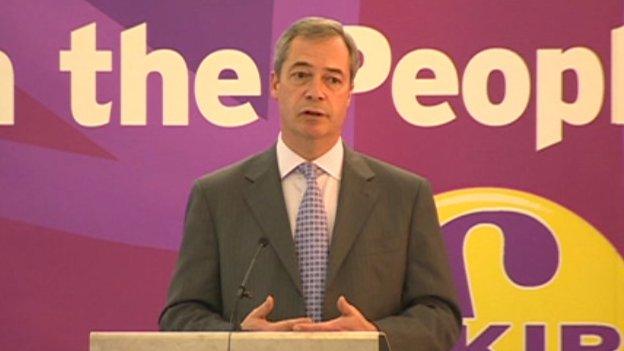
- Published28 February 2014
